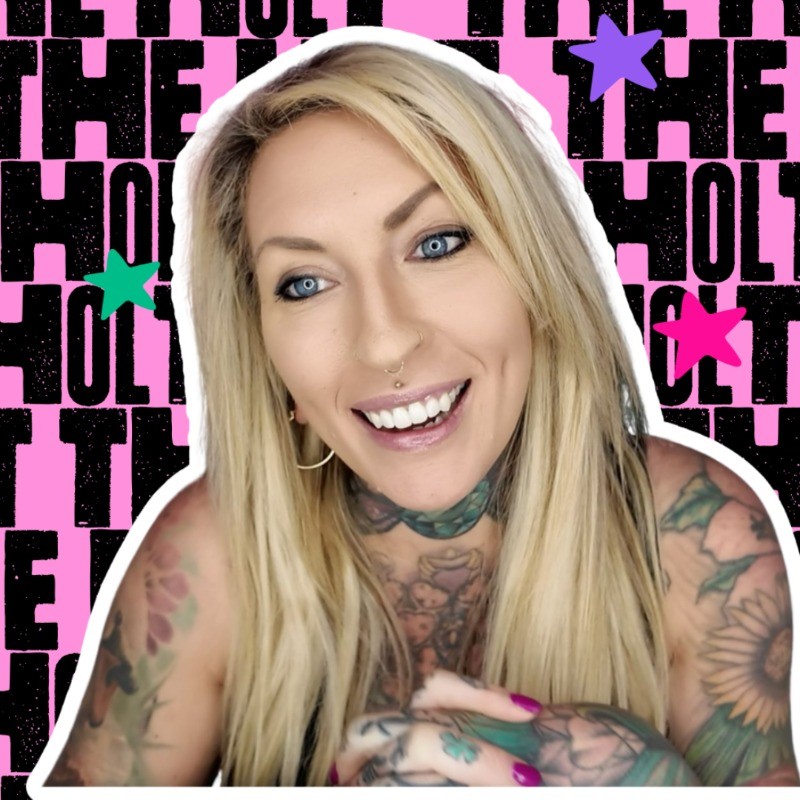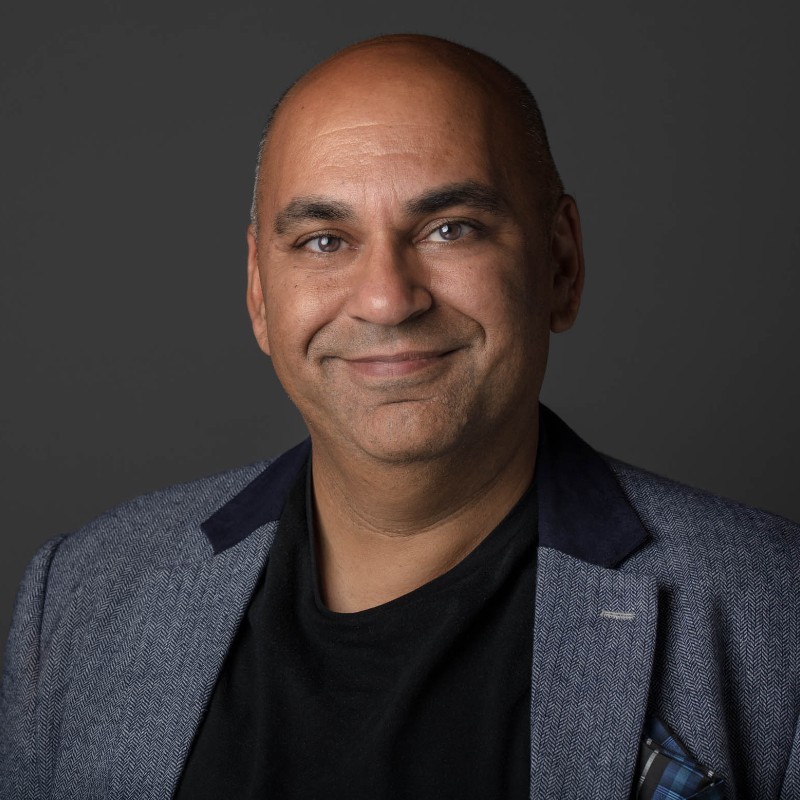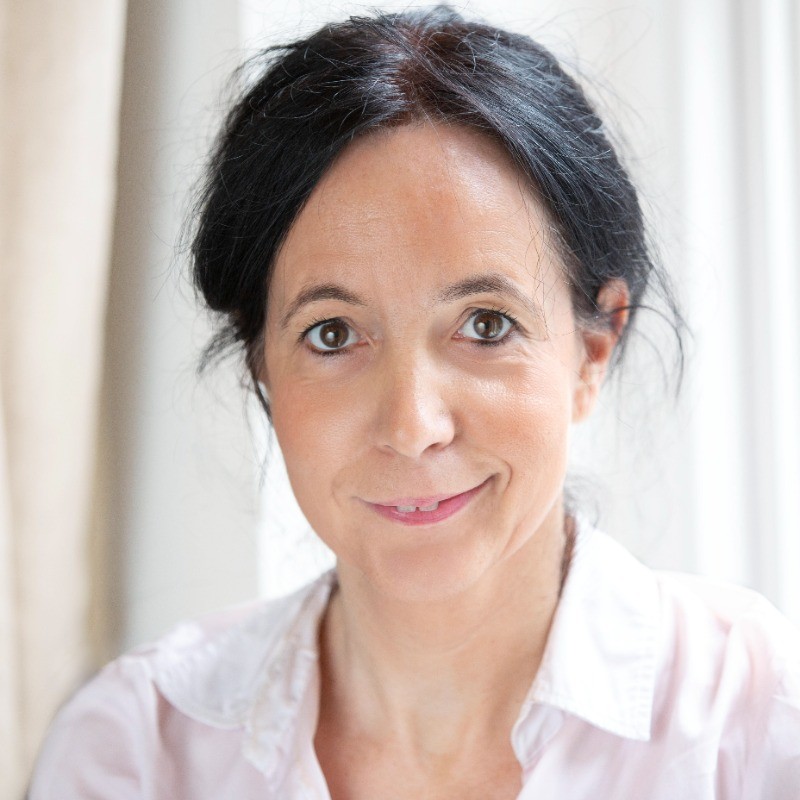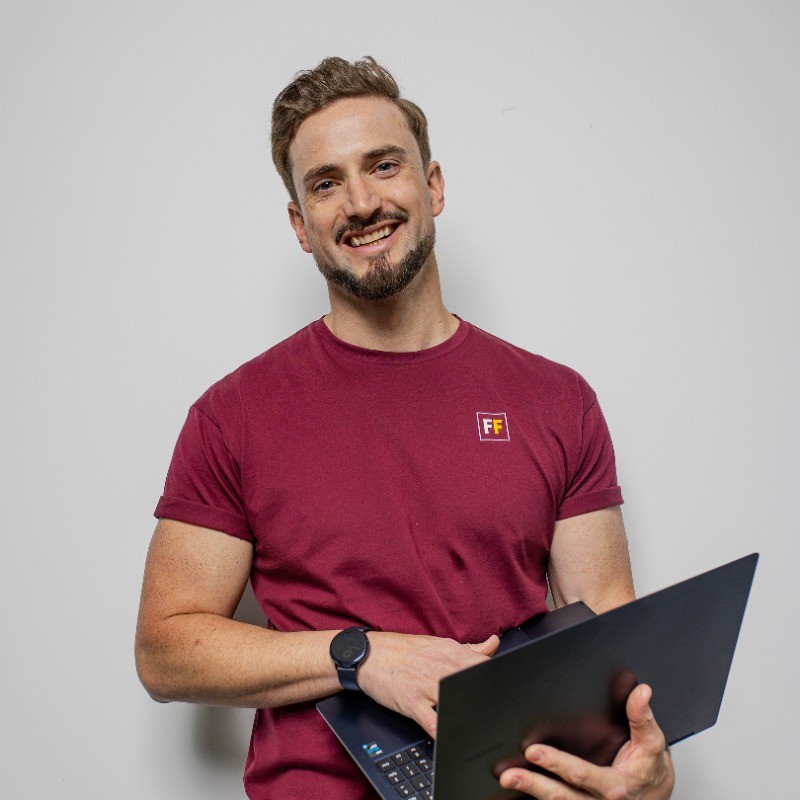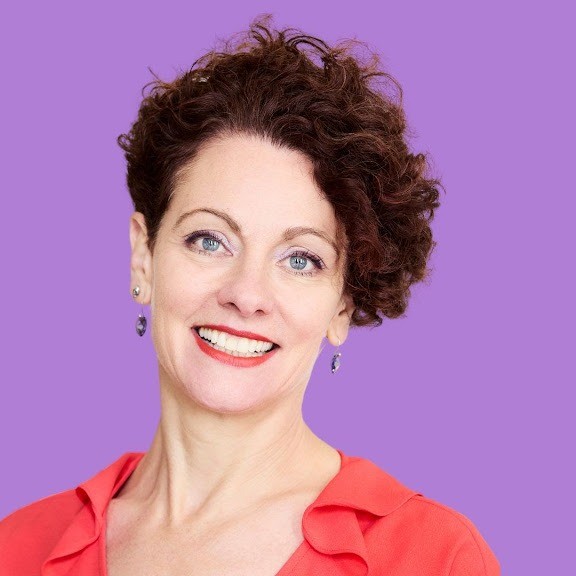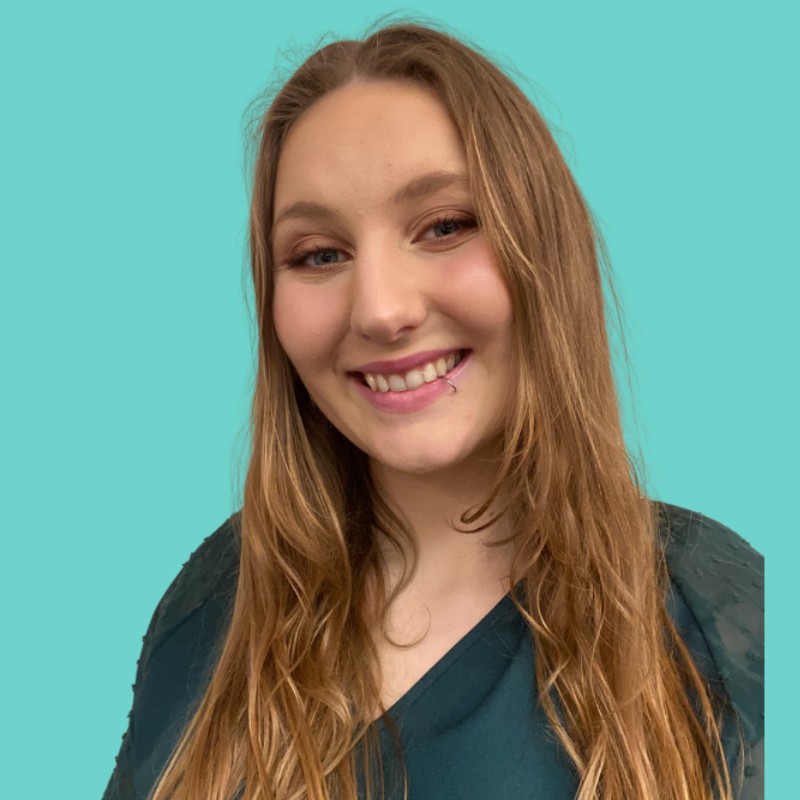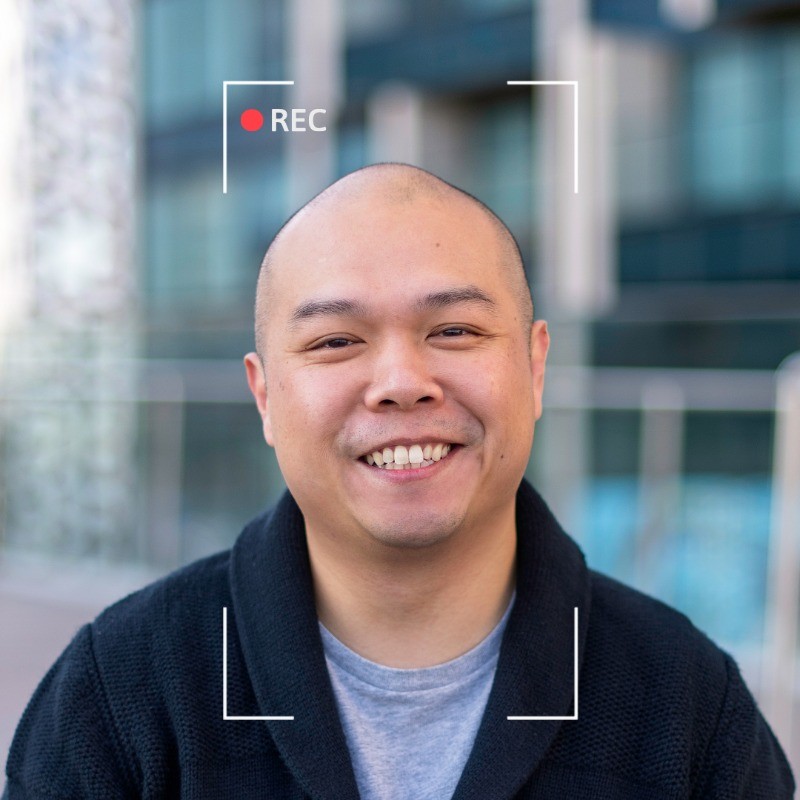B2B My Guest with Anthony Leung
Charli Hunt: Anthony, thank you so much for being on the podcast. I'll let you introduce yourself.
Anthony Leung: Charli, I'm so excited to be here. Hi, my name's Anthony, and I create engaging and authentic video content for corporate and personal brands on LinkedIn.
Charli Hunt: I'm so excited to have you. We went for a drink a couple of weeks ago and we were just talking about how much we hate LinkedIn pods. So let's start there.
Anthony Leung: my gosh, where do we begin
Charli Hunt: exactly.
Anthony Leung: with the pods? It's, it's incredible. Yeah. It's just what a, what a, what a funny concept. It's like, you know, just let's, let's create an echo chamber for, for our content. That may or may not be good. We'll never know, but people will like it.
Charli Hunt: Exactly. So let's briefly explain what a pod is. Because I did a LinkedIn post about pods the other day, and a lot of people were like, what is a pod? So to me, there are two types of engagement pods. The first one is a group of friends get together and they want to support each other's content on LinkedIn. I actually used to be in one of those and I found it was so So good for my confidence at the beginning, but then it wears thin pretty quickly when you don't really know how well your content is doing.
And then the second type of pod is an AI pod or a really big pod where you're basically just lying to everyone on LinkedIn about how well your content's doing, which is fine unless you're selling LinkedIn training or LinkedIn content services, in which case. Not great.
Anthony Leung: Yeah, I think you've nailed the two. I think the first one is actually quite interesting because especially for starters, you kind of want some validation. You will want a bit of self confidence boost, right? Uh, and so when you have a group of friends who are supportive, I think that makes you feel better about the content you're creating. You probably ask them for feedback and stuff, but at the same time , the feedback you really want is actually the audience you're talking to. So while your friends and people who want to support you are liking your content so you can get more reach. It's actually not doing the job that it should be, which is understanding if your content's actually hitting the mark. The second one, I find it hilarious because if you ask like anybody who works in marketing or social media and you ask them, Hey, do you guys employ like farms? Do you guys employ people, to just hit like buttons for your work account? And they'll say, no, why would we do that?
Because that's not marketing. That's not reaching our audience, right? That's our content not going to where it's supposed to go and doing what it's supposed to do. But yet when we do it for ourselves, we're like, Cool. We got a like farm. We got a pod. We got a group of people who will just hit the like button no matter what. So it'll extend our reach. I think it's hilarious. It's ironic. It's ironic that we think that it's okay when it's for a personal brand. It's not just LinkedIn.
I want to know when I create content that is actually hitting the mark, right? If it's not impactful, then I want to know why.
I want to know how I can change and make it better so that I can show up and be meaningful. Otherwise, it's just, just hot air.
Charli Hunt: Exactly and actually the people I was in a pod with I barely ever see their content anymore and they never comment on mine so I assume they don't see my content or they hate it and they were forced into doing it all those years ago So you're not even building a community. You're not selling anything like your friends aren't going to buy your products or services.
And if they are, they probably shouldn't need to have to read about it on LinkedIn first. I also noticed when I stopped using pods, I started to see a lot more second level connections commenting on my stuff, so I think. LinkedIn must know a little bit if you're using pods.
Anthony Leung: I think it knows. I think also, knowingly or not, the content probably got better because you started getting the right feedback from your pieces of content going out. And so when it gets better, of course it reaches second degree connections. And, I'm not surprised that all the people that was in your pod don't engage with the content anymore because my feeling about pods is that the people that are in the pods only engage with things that are in the pod. And in the thread of the pod. Because it feels like a transaction, if I like somebody's content, then hopefully they'll like mine back because they owe me one. And so when you're out of that loop, it's like, well I don't got to spend my time with them anymore. And I bet they've never read your posts in the first place. They hit the like button. They might've scanned it real quick so they can give a quick comment. And then that's it. They're off. And that's, that's not what content is supposed to do. You and I both know that as content creators, as writers, that writing good content is powerful. But it's only powerful when you know it's hitting the mark. So don't waste it on a pod. Yeah,
Charli Hunt: I guess also, you're not learning what good content looks like because you're only seeing other people's posts in a pod. So, let's say you have 20 people in a pod. You're only learning from 20 people. Whereas, if you use, um, LinkedIn or Lime, plug, plug, plug. You can see all sorts of people's content and you'll start to look at what looks good in all sorts of industries and for everyone.
Anthony Leung: That's a really good point. And it's 20 people, who are effectively looking at, I'm not saying those 20 people are mediocre content creators, but let's say they are. If there are 20 mediocre content creators inside a pod and they're always constantly just learning mediocre mediocrity, then you're never going to get away from that. Uh, because you'll pat each other on the back and go, Oh, wasn't that post great? It wasn't. But no one was able to identify that in the group and no one was able to go. Oh, you know what would be better? I learned this from this other thing or I saw this other piece of content somewhere else and inspired me to do something else. Um, and when you're in that space, it gets really hard to grow.
Charli Hunt: Yeah. And even if they're great, you're not getting that variety of content either. So you're not understanding, okay, I can take this from here. I like this about this. I don't like this about something else. Um, yeah, it's, it's not great. Whatever way you look at it.
Anthony Leung: It's also bad in the sense that we just end up trying to emulate everybody. And I think that the key to any good content is, is really just two things in social media. One is to understand what your story is. Um, you know, what's not just the transactional story that you have with your customers or with your audience.
So it's not like, hey, if I made a sandwich, if you gave me money, I'll give you the sandwich. That's transactional. The, the real stuff is underneath the hood and it's beyond that transactional relationship. You need to understand that. Then, you need to understand what we're just talking about.
How to tell a story on that platform. Because, you know, different mediums have different ways of storytelling. You, if you're writing for a book, it's different. If you're writing for a script for a movie it's different. When you're writing for a comedian on a standup stage it's different. And so you need to understand each of those stages that you're on, each of those mediums you're on and understand how to tell stories on them.
And that's, that's how we're going to learn is by trial and error or get help with, with guys like me, uh, or with your agency. It gets that rocket booster so much faster so that you're able to express your expertise, in a way that's, uh, consumed, that's, that's enjoyable, uh, on LinkedIn.
Charli Hunt: Exactly. That's the other thing. A lot of people said using a ghostwriter, is it cheating? I saw someone do a poll on it today and she had loads, like 600 votes. Only 2 percent I think said, yes, it's cheating. Everybody else said, no, it's not cheating at all. And I think we understand that.
That's the difference, right? With when you have a ghostwriter, someone's just kind of helping you fine tune your content and you, all the ideas are still yours. Whereas if you're using a pod, that's not really fine tuning anything. It's just buying likes.
Anthony Leung: It's just like
farm, even a different name and a professional name.
Charli Hunt: Exactly. If you're worried about posting on LinkedIn, hiring a ghostwriter is a great way to get started going in Rather than using the pods.
Anthony Leung: I'm not a big fan of the term ghostwriter because it implies that it's not written by the other person. I think that I would have a problem if the writer was employed that way to be like, hey, I think AI is a thing. Can you write me 10 things about AI and I'll sign off on five. If we're using Ghostwriters that way, then I've got a problem with that. But if it's to express your, to better express your, your ideas and your, your concepts, then that's great. .
Charli Hunt: The other thing is the, this kind of proliferation of chat GPT on LinkedIn. Oh my God. What do you think about people using chat GPT to write on LinkedIn?
Anthony Leung: Well, again, I think it comes back to how we use chat GPT, right? Actually can be a great tool. As a small business owner who. You can't afford having an army of junior writers. Uh, that helps me get to certain things faster. Certain writing things faster, refining certain things faster. I never use it to, uh, to do the whole thing or to ideate. But it does help me get to better quality or certain places faster, uh, back in the day when I was doing social media content for Just Eat it was so good. I had a team of people who, uh, really understood certain things that I wouldn't understand, like, let's say football. And so I, as, as manager, I knew that our brand needed to show up in the football space, but I knew nothing of a football. And so. I would lean on these guys and just listen to them talk about football and how they make fun of people. And I, I would sit there and listen and, and find the opportunity to see where a food brand can have fun with it. And so chatGPT is kind of like my team right now, where I go, well, I, there are certain things either I don't understand or certain things I would want to refine, or here's a sentence, uh, or that, uh, That I'm trying to write and here's a sentiment where I'm trying to hit, um, it's in my head. But if I sit here and try and nail the whole thing, it's going to take me like two hours. But if I ask you to do this task for me to get me further faster right now, it'll take me 15 minutes instead. Um, I think if we use it that way, it's good. But if we use it to just lazily go, what's the hot thing that all the kids are talking about today? Cool. Can you write me five things about it? And then just hit send. I've got a real issue with that because none of those are your thoughts. Right. None of those are your, your concepts. And it's dangerous because if you're creating a personal brand based on that, then you actually aren't doing anything. So if, imagine if you're creating content, on a subject, let's say professional wrestling, and you don't know anything about it and you start accumulating a community of people who enjoy professional wrestling and you show up at a professional wrestling convention and they go, cool. I love your content. Uh, what do you think about so and so and what about this match? And you're like, I don't know what you're talking about. That's the same thing that we're doing with our professional content. If we're, we're either farming it away for someone else to do, or we're asking chat GPT to just do the whole thing. It's not going to do you any favours when you meet those people in real life.
Charli Hunt: Yeah, that's how I treat it as well. Like a really clever, but really stupid coworker who I, and I also, I find it really hard to be rude. Like when it gets something wrong, I'm like, Please, may you change it a bit like this. I also think that Chat GPT is quite helpful for people who aren't very confident in their writing. So if you have really brilliant ideas, but you're not perfect at stringing a sentence together.
We used to have this huge network of freelance writers and I would hire huge amounts of writers for each project. And some of them would be so good at doing the test articles, but they weren't good at doing a lot of articles every week. So the first few would start off really well.
And then they would. Become really weird pieces of content. And I think I don't really get that with GPT because it never gets the spelling and grammar wrong. So at least you've always got that backbone. And if you're not brilliant at writing, but you have ideas you want to get out, then.
It is, it's really good for that.
Anthony Leung: I've seen, uh, user cases where it helps, um let's say a plumber, write emails and communication pieces to their, their prospect clients or their, their existing clients. And it helps them communicate better. In real life they're great people. They're so personable. But certain people aren't built for writing, and that's cool, but using AI to be able to string your thoughts into something that's better written, uh, better communicated, I think that's incredibly helpful for certain people. I think some, uh, some government pieces of communications can really use some of that help too, so.
Charli Hunt: That's true. Especially now you can talk to it. It's so much easier to make things chatty.
Anthony Leung: It's true. It's true. I find it really changing how I use AI when I chat with it. It actually helps me move, uh, move my ideas faster. So it, it, it almost feels like a really great listener, and someone who understands your subject. Just to unpack some of your ideas sometimes as well.
Charli Hunt: So bit of a right hand turn, but, how can you make sure you're reaching the right audience on LinkedIn?
Anthony Leung: Oh, that's fascinating. I think there's two, two things to think about, right? One is to use Lime, spon, and, start making connections with people in the industry or in the space you want to make an impact. Especially when you're starting from scratch. You need a community, you need a following, so that you get that, you get that, um, momentum. And the best way to do it is to, it's like a networking event. Just go and say hello to certain people that you want to say hello to. The worst that can happen is they say no, right? The worst that can happen is they ignore you. That's fine. Um, And once you get a certain amount of people that are in that industry, in that community, in that space, your content will start resonating with them even better. Uh, the second is to actually write content for, or create content for that space. So if you're writing something that really resonates with the food and drink industry, uh, and it's a pain point that they're having right now, that's going to travel because somebody in that space will engage with that piece of content. And then that piece of content will go to certain amounts of their followers who are also in the same space. That's how content travels. Of all the advancements that the algorithms have, uh, have been, have been doing in recent years, my favorite thing has been that a good piece of content will always travel. It's not dependent, solely dependent on how many followers you have anymore. It's, it's about how, how relatable that piece of content is. So somebody who has 120 followers, if they get a great piece of content that resonates with a lot of people that has this chain reaction too, then it can travel as well.
Charli Hunt: Yeah. So I'm in a business networking group of, quite big businesses. And some of my friends in those groups, they have something like 25 target customers. That's it 25. And so you don't need millions of followers on LinkedIn to reach those people. You need. Probably one really good piece of content.
Anthony Leung: It's true. And when you get that one piece, then it starts giving you clues as to, what you should be continuing to, to create as well.
Charli Hunt: yeah, exactly. Brilliant. And how do you know that you're creating a successful community around you?
Anthony Leung: That's a really interesting question because some people feel like the, uh, stats around engagement, it's often being put in the vanity metrics kind of camp. But I think that that's actually incredibly important.
And it depends on how you see those stats, uh, for organic content. Uh, and if you're not using pods, that's a great way to see if your piece of content is actually resonating, right? If you get a high amount of engagement, that's like likes and comments, uh, shares, etc., but it gets a low amount of impressions, that means that you're hitting your followers.
Those people who love you and know you and are cheering for you, those people, that's really resonating with them. Uh, but if you get high engagement and you get high impressions, that means that your piece of content is actually relatable beyond the people that. know you as a person or as a, as a brand. And that's incredibly powerful because now your piece of content is useful to somebody who doesn't know you. That's how you start engaging people outside of your community, existing community, and start building a personal brand beyond people who know you. So I think that's incredibly important to be able to see your engagement stats along with your impression stats, uh, and understand what is happening with the content, and what story it's telling you.
Charli Hunt: Brilliant. I've wanted to ask you that question for ages because I feel I've built up a really nice community around me since not, I mean, I had a lovely community when I was in a pod, but I feel like this is more of a kind of organic community. And I just know that I've built a community around me and I can't really put my finger on what is it that makes me know, and I think it's when people comment and they, they refer to something you've talked about in the past or, um, yeah, if the same people keep coming back.
Anthony Leung: Yeah, I think we underappreciate engagement, especially if we've been in the social media game for some time. It's incredibly hard nowadays, especially nowadays. To get a like, or to get a comment, you know, there's so much content out there. And there's so many different channels and we get a little sick about scrolling and hitting the like button. We will only hit the like button now when it's actually meaningful to us. Or if they've earned it. There's so many pieces of content where I've scrolled through and go, that was all right. That was pretty good, but I've never done anything with, and so. We need to be able to look at that like and go, wow, that was, that was something right. Uh, that we actually got them to move that thumb to the heart shape and actually do something with it. And then if they comment, that's even better because it's like, wow, they actually stopped. Hit the comment section, type something in so they can, they can participate or add something to it or debate you on something. Um, good or bad, you're stopping them in a track and you're actually engaging with them and letting them pay attention to you. That's great. That means you showed up and you were meaningful in some way. And that's the basis of brand building is just to keep showing up and to be meaningful.
Charli Hunt: Definitely. And I think to me, LinkedIn is a much easier place to do that than somewhere like TikTok, right? I feel like LinkedIn, you can build a community, whereas TikTok, you're more, it's so passive. TikTok, you're not even seeing content from people you follow. You're just seeing these things that TikTok thinks that you'll like.
And then if you go in the comments, there's never really any interaction with the person. It's just everybody's kind of talking to themselves in the comments. Whereas LinkedIn, it's so about the person's post who, you're commenting on.
Anthony Leung: I will debate that slightly because I think it might be an age thing. It might be also a different, uh, community thing because I, I've seen many people who've created, um, communities through their LinkedIn, there's, there are love triangles on TikTok. It's insane. And there are people that are so invested in these stories between these three people and they keep showing up on my For You page.
I'm like, I don't know these people, but I'm so entrenched in the story all of a sudden. And they create communities in a different way, I think sometimes they are in the comments, but at the same time, when they take a comment and respond to it and create video from there, that's one way that they do it in TikTok. But I also feel like you're right is that TikTok is easier to be passive, so much easier to treat as a television effectively and just go, Oh, I don't like this. I don't like this. Okay. I'll spend 30 seconds on this. I'll spend two minutes on this. With never ending entertainment. So it's incredibly easy to be passive. And I think it takes a certain group of people who are ready to participate on LinkedIn so that you can build that community. I suspect most of us who are, that we connect with, um, especially in the LinkedIn space, aren't the type to engage on, on TikTok. We grew up, In the Facebooks, the Twitters, um, and this is very familiar to us, this LinkedIn thing, and I think that's partly why LinkedIn has gotten this glow up recently is because it's familiar to a lot of us and we're almost retreating from this, this space where it's become incredibly saturated with entertainment and with things that we didn't ask for. And we're coming here and go, Oh, I understand this. And also we're all grownups here. We can, we can build relationships here. That's pretty cool. In a way we understand already because we've been doing it, you know, for like 10 years. That's partly why LinkedIn has seen a resurgence.
Charli Hunt: Yeah, that's interesting, because we've lost Twitter. Instagram has become so much about stories, which is way less about commenting and engagement. YouTube, I think YouTube's still brilliant for how to videos and things like that, but I used to follow certain creators on YouTube and I would really feel kind of involved in their lives and none of them post anymore.
You don't really get that vibe on YouTube anymore. Am I missing anything? Reddit? I love Reddit. Can't get enough of Reddit now. That's like my new Twitter.
Anthony Leung: Yeah, I think that all you know, as much as we love what LinkedIn is right now, I also think that it's also looking into video space. That's why I've been looking to do more video content for my clients. We are moving to that space. And I think it's TikTok is partly to blame, because before TikTok, I feel like two things, right?
One, the algorithm was based on followers. It's like, if you have a million followers, you could probably get a pretty decent reach. TikTok changed all that by saying, Hey, if your piece of content is good, if every piece of content has a chance to go viral, as long as it's good. That's cool. I love that. Um, and the other thing that has changed is we've turned videos into a language. It's changed language of how we communicate on video. And it's not exclusive to TikTok. It's a language that's travelled to YouTube shorts, to Instagram reels, uh, and now to LinkedIn as well. I feel like LinkedIn is slightly different in this, in the way that, um, it needs the, the pacing and the energy from videos that you see on TikTok, but also respects the, uh, audience because they are here, to have a certain type of content and a certain depth of content. I feel like LinkedIn videos is actually going to be its own thing where it's a mixture of the two. Which I think is actually exciting because, we're going to have to force people to be more entertaining with their delivery. With more intent, uh, be more personable and be more authentic. I'm all for that.
Charli Hunt: And do you think that's the same with LinkedIn as TikTok? So do you think every piece of content has the chance to go viral if it's a brilliant piece of content? 100%
Anthony Leung: I once saw, uh, somebody do a game effectively on LinkedIn and he, uh, did a graph, uh, and said, Hey, guess, guess the search term genius. The guy had 120 followers. By the end of his run in that post , he had about 500 followers. This is small potato, right? 120 people that he had following before, but his posts reached about 10, 000 people.
Uh, last time I checked on him, um, and it's about a piece of content that is relatable to, to the audience. So there's definitely opportunities for us and our content to travel further if it's done well, and we'll be rewarded for, uh, doing a good piece of content, that's relatable to, to a lot of people. I don't expect all of our content to be hitting the millions or, uh, in terms of impressions. But what I am saying is that, your content, if it's relatable to your target audience, and if you have a great community around you, that's going to travel a lot further than you think.
Charli Hunt: We've talked about all the good things about LinkedIn and what we think about it, but I want to know, we talked about this a couple of weeks ago, what are some mistakes you've made? When on LinkedIn.
Anthony Leung: Whoa, mistakes. I think that, it's not a mistake. There are different ways to play LinkedIn. Um, there are different ways to approach LinkedIn. Some people approach it as a sales, you know, funnel effectively. And they look at LinkedIn and they go, Oh, cool.
A never ending list of clients that I can deliver the ending list of prospects. I can be hitting up. Um, and, uh, it becomes a numbers game and they start, trying to connect with a bunch of random people. And then the term pitch slap, that's where it's boring, where you connect with somebody, and then the next thing, you know, it's like, Hey, buy my thing.
It's like, Oh no, I don't know you. We're good. Once upon a time I, I dabbled into that. I feel like that's not my brand of, of LinkedIn. I love LinkedIn because it builds genuine trust and genuine relationships. I feel like that's what is going to power my business beyond one year, three year, five year, 10 year. I would much rather be able to connect with people on a deeper level than to trick them into buying something right now. That's how I feel. My first mistake on LinkedIn was, um, there was a point in time where I just thought, Oh, I'm going to scale my business.
I'm going to make a million pounds. And the only way to do it is to scale as fast as possible. It works for some people, it doesn't work for me. What I feel now is that I need to find what I am, how I'm the most useful to my target audience. Um, discover that and, and then continuously communicate with them on LinkedIn and build trust that way.
So that when I do have something helpful and useful, they'll be there to go, cool, let's work together.
Charli Hunt: Amazing. And you're well into your journey on LinkedIn. What about people who are a bit nervous to start on LinkedIn? What advice would you give them? What tips, how could they get started posting?
Anthony Leung: Oh, first of all, I think that a lot of people struggle with that, whether they're a student in university or they're a CEO of some big shot company. I feel like a lot of people look at their, their experience and go, why would anybody want to listen to me? And I think that's a real shame because everybody has a story and everybody has something that's relatable and we can learn from everybody. So, uh, the first thing is to be able to recognise that you do have something valuable to share. The next thing is to do your first post. I think that, uh, you go out there and, and when you do your first post and you hit enter for the first time and hit send for the first time, it's nerve wracking. But the more you do it, the more you realise that it's not as devastating as you think. But I think when we first start, we, we look at the content and go, why isn't it getting a thousand likes? Why is it only getting two likes, uh, and no comments. And when we first start, we look at that as feedback, as validity of the value that we're bringing. And that's not the case.
What we have, the knowledge and experience is gold. It's great. But when you're not getting as much likes engagement on your content, it just means that you just need to work on your storytelling. It just hasn't been communicated well. And so once we separate that and have a different mindset, where we look at engagement as feedback as to how well we're communicating. That's very different than if you're valuable, if people care about your content. The other is, uh, to really understand your own story. And you would know this, Charli, working with brands and branding. And copywriting, um, in order to write anything for any brand, we need to work on their story and their values. When we do our content, it feels like we live our values every day, and, uh, it feels weird to have to write it down, but if you don't write it down, it's hard to understand what your story is.
So you need to really understand what makes you tick, what brought you to the game, what makes you different. When I work with some of my clients. I have what I call the starter kit and I have eight questions I ask them to understand what their story is and what their motivations are. And we always go back to those answers because that's the core of who they are. And that's where the rich content is gonna come from.
Charli Hunt: And does that apply to finding their voice as well? So let's say you've been posting for a bit, but you're not quite sure you've found Your exact voice. What can you do to find it?
Anthony Leung: Yeah 100 percent does It 100 percent does because when you are, when you write down on paper what your values are, things that you won't move from, things that brought you to the party and you always, always go back to that. That's always going to drive your tone of voice. And I think that, uh, it gives you confidence as people engage with you because of those values. That's when you realise where your, your niche is going to be.
Charli Hunt: Okay. Let's talk video. So you've started creating video for people on LinkedIn. We've talked about how it's going to be the next big thing. And that LinkedIn is this happy medium between TikTok and more educational kind of YouTube videos. What are some top tips you'd give people for creating videos for LinkedIn apart from hiring you, obviously?
Anthony Leung: Yes. First tip, hire me. One of the biggest obstacles is confidence actually, uh, and a lot of that confidence actually gets knocked over because we're, we're forcing ourselves to have this perfect video every time we create, and so when we turn on the camera, we have this ginormous script that we're trying to memorise and my first tip would be to stop doing that. Break down your script into small chunks so that you can memorise a line at a time. Editing takes care of the rest of that. And the other thing is, I think that a lot of people don't go onto camera because it's hard to listen to your own voice and see yourself on camera for the first time, because it's weird the first time. I'm not trying to knock anyone, but look at me, I'm not camera material or voice material. But I, I recognise the fact that showing up is more important. Showing up on people's feeds and talking to them is more important. And I set that aside and, and I just be myself.
It's easier said than done to be yourself on camera. But, um, the more you practice, the more you'll let loose and the more your personality, let your personality shine.
Charli Hunt: I looked at my first ever LinkedIn video the other day and I thought, Oh my God, I look nervous. And then I just don't care now. I think you, I think you just got to post that you got to press post on that first horrible one and then the more you do it, the better you'll get and the clearer your thoughts are all the time.
So the less umming and ahhing you do. Anyway, especially when you have to edit them out and you're like, Oh, for God's sake, Charli, not another bloody um,
Anthony Leung: If it makes anybody feel any better, my first video was for work. And, uh, it was the worst thing possible and it's on Twitter somewhere and it still lives today. And I forced myself to go up there because I just knew that I, I need to learn how to communicate this way. There's no better time than now to get started. As technology progresses even faster and better. Uh, all of our phones become little studios. You can turn that camera around to yourself and you can start talking to your audience. No longer is it just writing. You can actually literally talk to them. It says so much to your audience that you're showing up to, uh, to, to chat with them. It builds so much more trust. It gives them a way better sense of your personality. It is a great way to communicate.
Charli Hunt: I agree. And what are the metrics that really matter on LinkedIn? We've talked about going viral and impressions, but how do you measure how you're doing on LinkedIn?
Anthony Leung: The same things that we just talked about. First thing I look at is engagement. And I go, is anybody resonating with this? And then I look at the people who are engaging with it and I look at it and go is my target audience in there, right? The next thing that I look at is the impressions and I cross reference that with the engagement and go, is, is this only resonating with my audience, which is great. But if it goes beyond that, even better. So there are certain pieces of content that I make specifically for people that know me, uh, if it doesn't travel as far, that's fine because I'm also connecting with the people that know me and follow me. But there are other pieces of content where I'm like, I know this is going to be more relatable to others.
I would like to see more impressions. So seeing high impressions, high engagement, that for me, is a great way to know that your content is building your brand beyond people who know you. Those really are my two key indicators for content. There are other things where , if you put an offer out there and see if people connect with it and people respond to it, that's another way to test your audience and see how responsive they are to some of the work that you do, not just your content that you're creating. And that's really all I got. That's the metrics that I go by.
Charli Hunt: That is the important thing, isn't it? It's all fun and games, creating content and creating a community, but you have to do those sales posts sometimes, and they don't always perform as well as the other posts, but they perform better in some respects because they get you clients.
Anthony Leung: I mean, if we go back to, you know, mistakes I make around LinkedIn, I think that's one thing that I am still trying to get better because my, I value the trust I have that we're building with, with my audience so much, sometimes I feel like I I'm betraying it by saying, Hey guys, can you guys You know, help me out, uh, or I'm offering this thing, is this helpful to anybody? And ultimately we're here building a business. And the business can't feed itself. And the business is only good when it's helpful to others. And so when, uh, we create content around how that's helpful to our community, that's great. But when we're off, when we have our offer out there and we're putting it out there, that's also helpful to our community. And it's just raising it to them, make them aware of that. It's, it's a helping hand. It's a branch that's there. If they're ready for it, that's cool. If it's helpful to them, that's cool. I think it'll only feel salesy if you're like, buy this thing now. And that's all you do. And you don't really give them a reason. You're not listening to them and not engaging with them. I did this analogy just yesterday with a friend where I think that our content, and when we build a community, it's kind of like a band playing a show at the O2, let's say, right.
And when they're engaging with that content, it's like, oh, that sounds great. That music is great. I love the song. They leave the show at the end of the show. If there's a merch table, I'm buying a t shirt. Right. I'm buying a hoodie, I'm buying a hat. Um, and that's the two sides of, of what we're doing. Right.
Um, and without letting them know that there is a merch table to buy a shirt, they wouldn't know where, where to get it. They want it. They have no idea where to get it.
Charli Hunt: That's such a good analogy because it turns us all into rock stars. Which is great.
Anthony Leung: Oh, yeah. Naturally.
Charli Hunt: And if you could leave our listeners with one key takeaway from this episode, what would it be?
Anthony Leung: The key thing from this whole thing is to not be afraid to be yourself. Not be afraid to create content, whether it's written content or video content, uh, to engage with their audience, and not be bound by a fear of not being good enough, because I feel like that's why we're driven to pods.
That's why we're driven to places where it instantly makes us feel better about ourselves without actually working for it. And so if we want to have a presence beyond this pod, beyond an echo chamber, then we need to be able to be comfortable with ourselves, be able to be comfortable with telling our stories, and get people like you and I to help out. In places that will get them faster. So their expertise and their stories and all of their knowledge goes out there and really connects with people on this platform we call LinkedIn that we know and love.
Charli Hunt: And if people loved listening to this podcast episode and they want to find you, where can they find you?
Anthony Leung: Shockingly, you'll find me on LinkedIn. Look for Anthony Leung and look for Mean Write Hook W R I T E, not R I G H T. I get that confused a lot, but yeah, look for me on LinkedIn. I would love to talk to anybody, drop me a DM, uh, and, and let's talk video,
Charli Hunt: Brilliant. And that's how they can work with you, with LinkedIn videos.
Anthony Leung: uh, with LinkedIn videos. If you're looking to create LinkedIn content You if you see how valuable video is come talk to me I have ways that work for clients so that if you're It makes them feel comfortable in a way where they can be themselves. And so you are now presenting your authority and your knowledge in a way that's authentic.
And that's the best way to show up on LinkedIn.
Charli Hunt: Thank you so much for being on B2B, my guest, Anthony. We are so lucky to have you .
Anthony Leung: Thanks for having me. I can't wait to see this episode.
